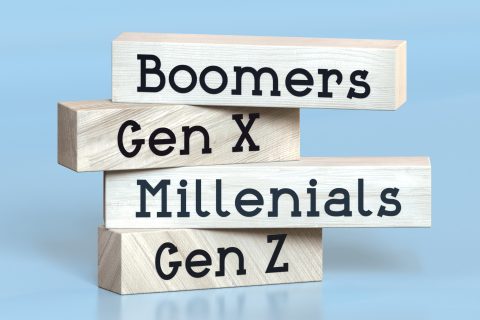Gen Z-ers are more likely to identify as gender fluid, trans or nonbinary than older generations. The question is: Why? Jean M. Twenge, professor of psychology at San Diego State University, joins host Krys Boyd to discuss the various theories as to why this generation seems more comfortable with an array of identities. Her book is “Generations: The Real Difference Between Gen Z, Millennials, Gen X, Boomers and the Silent Generation.”
This episode originally aired May 30, 2023.
Blog Post: Gen Z is taking it’s time to grow up
By Aislyn Gaddis, Think Intern
Gen Z is more open to new gender identities than earlier generations, but that’s not the only difference. Members of Gen Z are taking longer to embrace certain rights of passage.
Take sex, for example.
“You would think that in an era when premarital sex is more accepted and when dating apps are ubiquitous that more people would be having sex as young adults. In fact, it’s less so,” Twenge said. “Maybe it’s due to technology…maybe it’s because there’s just so many more things to do at 10:00 at night than there used to be.”
Gen Z is also much less likely to say that they want to have a life-long partner, want to get married, or that marriage and family life are extremely important to them, according to Twenge.
While these differences could be permanent shifts in attitude, they also might be part of a larger phenomenon of Gen Z-ers developing slower than previous generations.
“Teens are less likely to have their driver’s license by the time they’re 18 or almost 18. They’re less likely to have ever tried alcohol. They’re less likely to have a paid job, to go out on dates, to go out without their parents,” Twenge said.
While Gen Z is the first generation of teenagers she’s studied to experience this slow in development, Twenge said it’s part of a larger cross-generational trend called “the slow life strategy.”
“Because people are living longer, the entire developmental trajectory has slowed down,” she said. “Kids are less independent. Teens are less likely to do these adult things. Young adults take longer to get married and have children and settle into their careers. Middle aged and older people feel and look younger than their parents or grandparents did at the same age.”
To learn more about how Gen Z is different from past generations and theories as to why, listen to the podcast above.




